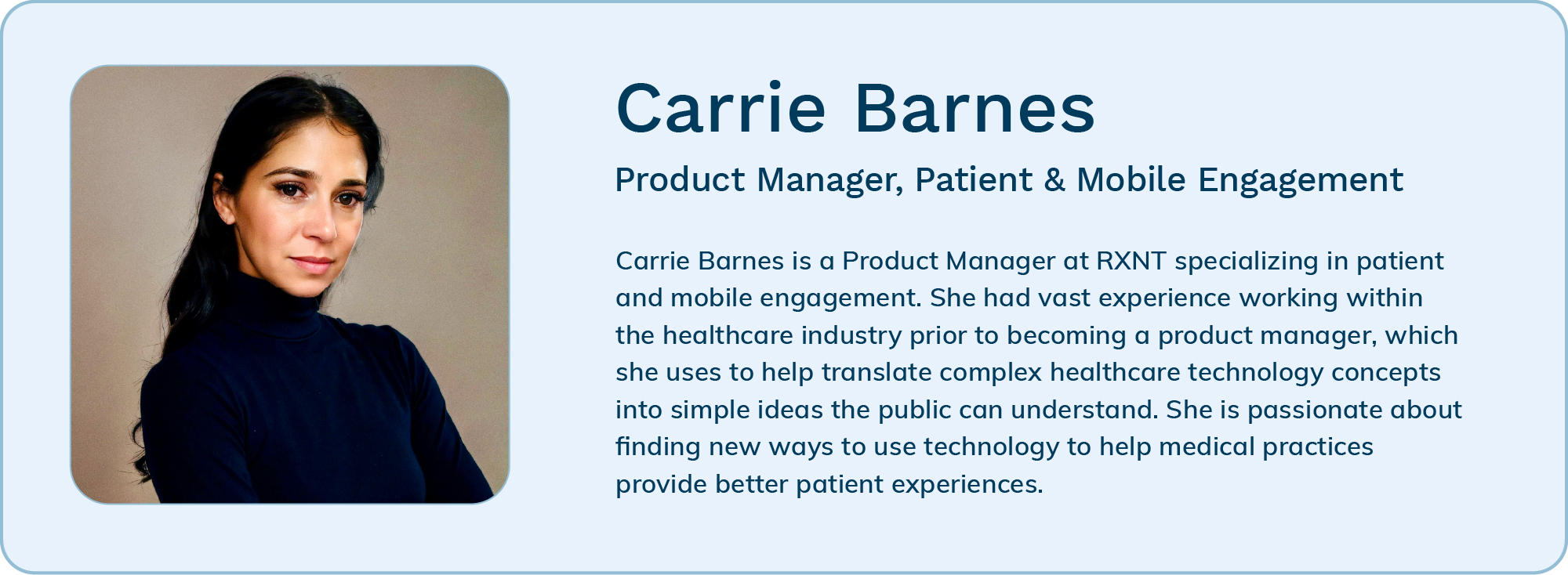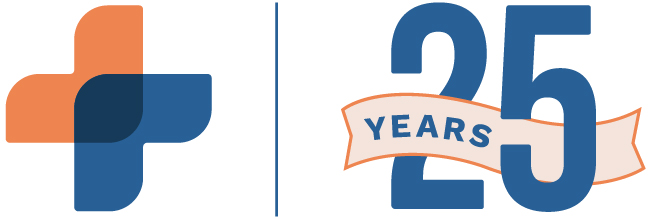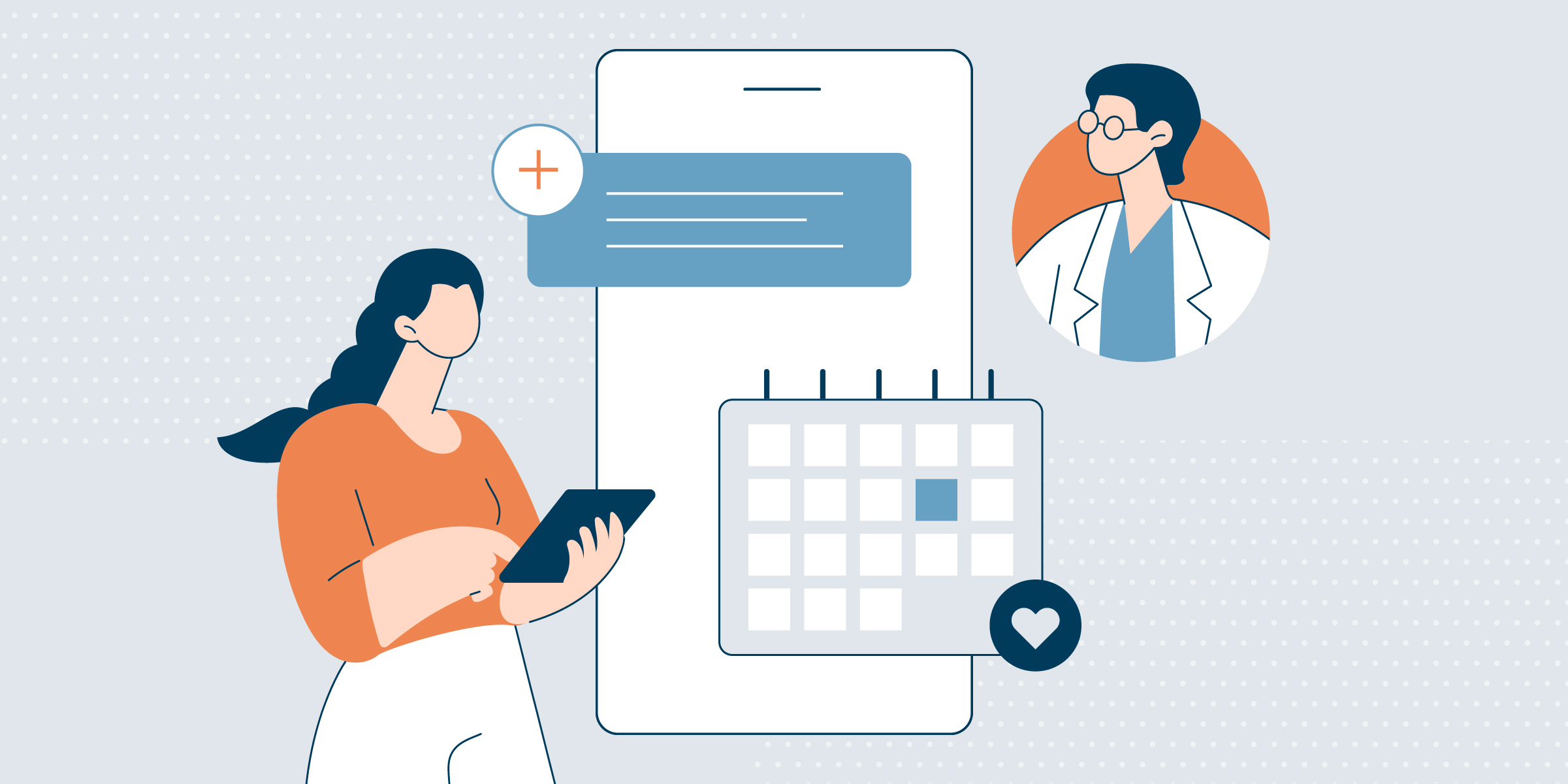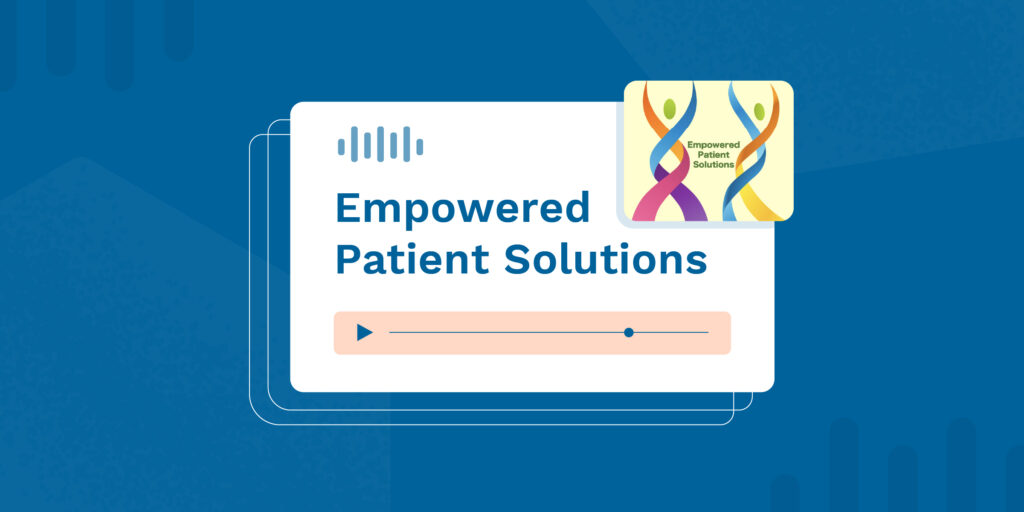Over half (55%) of U.S. consumers say they would prefer to use a mobile application to manage healthcare appointments, prescriptions, and medical records. Patients want more convenient, efficient care from providers and to manage that experience from the palm of their hand.
97% of Americans own a cellphone of some kind, and nine in 10 own a smartphone. This is an incredible increase from 2011, when Pew Research Center reported that only 35% of Americans owned a smartphone. With this increase has come a higher degree of familiarity with mobile-first experiences across shopping, work, and communication—so it’s not surprising that patients increasingly expect mobile-first options from their healthcare providers, too.
In fact, over half (55%) of U.S. consumers say they would prefer to use a mobile application to manage healthcare appointments, prescriptions, and medical records. Nearly nine in 10 (88%) say text message notifications for information such as appointment reminders, pharmacy prescription updates, and medication coupons are valuable. Patients want more convenient, efficient care from providers and to manage that experience from the palm of their hand.
Why Patients Want Mobile Options
Understanding the forces behind why patients want mobile options can help us better identify how to meet these expectations. The top benefit U.S. consumers believe adding more technology to care experiences would deliver is greater convenience. Managing healthcare needs from the devices they already use daily provides incredible value for healthcare consumers. Patients can schedule and update appointments, review test results, send messages, and request refills in just a few taps of their screen. This level of convenience is no longer seen as a nice-to-have, but a must-have.
Having the ability to access health information anytime, anywhere was another top benefit for 44% of consumers surveyed. Just as smartphone owners read the news and contact friends on their smartphones, they also check medical records, assess their health status, and follow up on treatment plans. Likewise, patients see the benefits of improved efficiency and a better patient experience through mobile-first technology, where they can skip paper forms, faxes, phone calls, and in-office transactions altogether.
Mobile applications can also help deliver a more personalized care experience for patients. Patients can share real-time information and data with providers and communicate with them asynchronously. This gives providers more insights into each patient’s unique needs and allows them to tailor treatment plans accordingly.
3 Ways Not Having Mobile Options Hurts Your Practice
As detailed above, integrating mobile-first technology certainly has many benefits, such as convenience, efficiency, and a better patient experience. Conversely, lacking mobile options for patients can have a negative impact on medical practices, such as:
- Greater administrative burden. Without mobile-first technology, practices are forced to rely on manual processes to schedule and reschedule appointments, collect payments, process paperwork, and manage communications. This takes time away from value-added tasks and can increase the risk of human error.
- Lower patient satisfaction. As patients have become accustomed to using mobile technology to manage everything from finances to household purchases, they expect the same for managing their healthcare. Not providing this experience can increase frustration and drive patients to seek care elsewhere.
- Reduced patient engagement. There is also the opportunity cost of patient engagement. Mobile technology allows you to send important information about prescriptions, treatment plans, appointments, and the like to patients. Without these tools, you forfeit some of these opportunities to engage with patients, which negatively impacts their health over time.
How to Successfully Adopt a Mobile-First Approach
Moving from manual to digital strategies can be challenging, especially as you train employees and patients on how to use new systems. But the effort can lead to great results. As you look to adopt and incorporate a mobile-first approach in your practice, focus on the following:
- The right mobile solutions. A one-size-fits-all approach won’t have the payoff you’re looking for. Instead, select mobile apps that suit your needs as an ambulatory practice, such as scheduling, patient-provider communication, secure access to electronic health records (EHRs), and payment processing.
- Prioritize integration and security. Make sure the mobile tools you select offer EHR integration and HIPAA compliance. That way, you can avoid the hassle and headache of dealing with disconnected systems and potential security breaches.
- Promote your mobile solutions. Once you’ve selected and implemented your mobile-first technology options, take time to communicate the benefits to patients and staff. It’s wise to plan to offer support as everyone gets accustomed to the new solutions. Take in feedback and optimize the solutions you provide as needed.
Adopting a mobile-first approach to the modern patient experience doesn’t just benefit patients. It also provides a more efficient, optimized experience for providers and staff.
At RXNT, we can help you deliver care that exceeds patient expectations from wherever you are. Our iOS and Android apps are free for medical practices using our solutions, allowing you to access data at any time, from anywhere securely.






